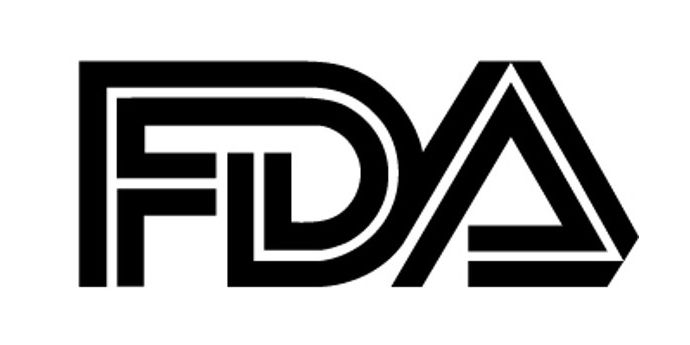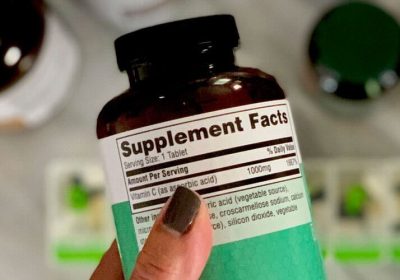It is without doubt a new year, but an old threat from the FDA could make it a lot less happy for many of us if it’s used to eliminate tens of thousands of health-giving supplements from the market. Action Alert!
It’s 2024, and we’re looking ahead toward an exciting, action-packed year working on behalf of all consumers who rely on natural medicines to optimize their health. Many challenges lie ahead, but with the dedication and activism of the natural health community, we truly believe that any obstacle to our health freedom can be overcome.
As regular readers of the Pulse of Natural Health will know, one of the biggest threats to your supplement access that we’ve discussed over the years is the proposed, disastrous new dietary ingredient (NDI) guidance from the FDA. We’ll remind you of some of the details about this guidance below, but the bottom line is that if it becomes final in its current form, experts have estimated that we could lose access to over 41,000 dietary supplement products. Not only that, but it will make innovation in the supplement sector more burdensome and difficult, so it will be harder for companies to deliver us better quality supplements at affordable prices.
We bring this up because the FDA has been saying for the last two years that it plans to release imminently the final version of this guidance. The agency originally said it planned to release an update by the end of 2022, and when that didn’t happen, that it planned to do so by the end of 2023, which also didn’t happen. Unfortunately, we don’t know when the final version will be released, but it seems to be a priority for the FDA: on a published list of “Food Program Guidance Under Development,” the NDI guidance is the third item listed. The FDA originally issued the draft NDI guidance in 2011, and then revised it in 2016. Given these massive delays, it stands to reason that the FDA is making this a priority in 2024.
Under the Dietary Supplement Health and Education Act of 1994, any dietary supplement introduced to the market in the US after 1994 is considered “new” (an NDI) and the manufacturer must notify the FDA at least seventy-five days in advance of marketing the product.
This provision, intended for notification, is morphing into a stringent pre-market approval process for new supplements (NDIs).

It appears to be ever more closely modeled on the horrendously stringent Novel Food Regulation in the European Union (EU) that requires so much data, only the largest companies can meet its requirements. Like in the EU, the FDA is effectively demanding safety studies akin to those required for drug approvals. This demand for studies creates an insurmountable challenge for natural supplements, unlike the case for patented drugs. Consider this: drug approvals profit from patents, exclusivity and sky high pricing, affording them the resources to cover the costs of conducting studies. But supplements, inherently natural, less amenable to patents or exclusivity, and sold at modest, affordable prices, lack such resources. This shift towards mandatory pre-market studies threatens the very existence of supplement companies and risks pricing supplements out of reach for consumers.
Safety is paramount, yes, but let’s look at the track record. Dietary supplements boast a consistent safety profile. Data from the American Association of Poison Control Center’s National Poison Data System (NPDS) typically show, year on year, that zero Americans die from taking dietary supplements. Supplement opponents often cite a US Health Department report that found supplements cause 23,000 emergency room visits each year. Yet over 20 percent of the cases analyzed were the result of unsupervised children swallowing pills. Forty percent of cases among those 65 and older were caused by choking. Many other cases were heart palpitations from ingesting too many diet pills, sexual enhancement pills, and energy drinks. The point is, the narrative painting supplements as a public health menace, necessitating stringent safety measures, is a fantasy.

The FDA is also broadening the group of substances that must submit NDI notifications by adopting a loose definition of what it means for a supplement to be “chemically altered.” Simply put, if an “old” ingredient—say, vitamin D—is “chemically altered,” then NDI notification applies to that ingredient. The problem is that the FDA’s definition of “chemically altered” is so broad that only the most basic manufacturing methods would not “chemically alter” an ingredient.
This language, as well as the way it can be interpreted by the FDA, is akin to gifting the FDA with a loaded gun that it can use arbitrarily. It will stifle innovations in manufacturing and it ignores the fact that new and more effective ways of producing supplements have arisen in decades since DSHEA passed.
In our previous comments to the FDA on this guidance, we’ve argued that NDI notifications should be required only when the process of “chemical alteration” results in an output that is chemically and therefore functionally distinct from the source ingredient, thereby raising a question of safety. Thus, chemical identity should be the FDA’s primary concern. A product cannot be chemically altered unless the end product is molecularly distinct.
There are even more problems with the guidance that interested readers can reference in our previous coverage of this topic.
The FDA’s development of new NDI guidance is one of the most blatant attempts to eliminate Americans’ ability to stay healthy, naturally with dietary supplements. We must vehemently push back against this disastrous guidance, whether it comes in 2024 or beyond.
Action Alert! Write to Congress and the FDA to urge drastic changes to the NDI guidance to protect supplement access. Please send your message immediately.



